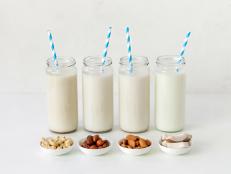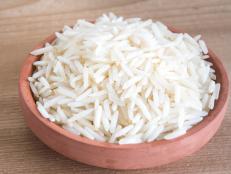What You Should Know About the Latest Ground Turkey Public Health Alert
It's time to check your freezer.

DronG/Getty
On April 12, 2021, the Centers for Disease Control and Prevention (CDC) issued a food safety alert for a foodborne illness outbreak of Salmonella Hadar linked to ground turkey. Here is important information about this outbreak you should know, and what to do if you have ground turkey in your refrigerator or freezer.
About the Outbreak
As of April 12, 2021, there have been 28 people infected with the strain of Salmonella Hadar from 12 states. Illnesses began on December 28, 2020 to March 4, 2021. The age range of folks who became ill range from less than 1 year old to 92 years of age. Of the 19 people where information was available, two were hospitalized and no deaths have been reported. According to the CDC, the true number of people who were sickened in this outbreak is likely much higher than the number of reported cases, and the outbreak may not be limited to those 12 states where illness has been reported. This is certainly possible as many people recover from Salmonella without medical care and aren’t tested for the bacteria. Plus, it also takes about 2 to 4 weeks to determine if someone is sick as part of the outbreak, so recent cases may not be reported.
The most common symptoms of salmonellosis are diarrhea, abdominal cramps, and fever which can come about within 6 hours to 6 days after consumption of the food. The illness usually lasts between 4 to 7 days and most people recover without treatment. Those with a weakened immune system like older adults, infants, and those with a weakened immune system are more likely to become severely ill. If you’re concerned about having this illness, do contact your local health care provider.
The Public Health Alert
The U.S. Department of Agriculture’s Food Safety and Inspection Service (FSIS) issued a public health alert for about 211, 406 pounds of raw ground turkey products, produced by Plainville Brands, LLC due to concern that the products may have caused Salmonella Hadar illness. There was no recall because it’s believed that the products are no longer available for purchase at markets. However, the concern is that some of the products may be frozen in your freezer. If you find any of the following products in your freezer, toss or return for a refund at the market you bought it at.
The raw ground turkey products were produced on December 18, 2020 through December 29, 2020. The public health alert covers the following products that have the number EST. P-244 inside the USDA mark of inspection. The items were shipped to retail locations throughout the U.S.
- 1-lb. packages of Nature’s Promise Free from 94% LEAN | 6% FAT Ground Turkey with Use by/freeze/sell by date of 1/1/21, 1/3/21,1/4/21, 1/8/21 and 1/10/21 on the front of the package.
- 1-lb. packages of Wegman 94% LEAN | 6% FAT Ground Turkey with Use by/freeze/sell by date of 1/3/21, 1/4/21, 1/8/21 and 1/10/21 on the front of the package.
- 3-lb. packages of Wegman 94% LEAN | 6% FAT Ground Turkey with Use by/freeze/sell by date of 1/3/21, 1/4/21, 1/8/21 and 1/10/21 on the front of the package.
- 1-lb. packages of Plainville Farms Ground White Turkey 93% | 7% Fat with Use by/freeze/sell by date of 1/10/21 on the front of the package.
At this time, the USDA-FSIS is working to determine if any more turkey products are linked to the illness. That is why it’s important to always follow food safety guidelines when handling raw turkey.
Safely Handling Ground Turkey
The following four steps should be followed when handling raw ground turkey:
Clean: When handling any food, including raw ground turkey, wash your hands often and wash any surfaces and utensils you use often. Germs that cause food poisoning can lurk in many places in your kitchen. Wash your hands for 20 seconds with soap and water before, during, and after preparing and eating food. All utensils, cutting boards, and countertops should be washed with hot, soapy water.
Separate: Raw meat, poultry, seafood, and eggs can spread germs to ready-to-eat foods (like fruits and veggies) unless you keep them separate and avoid cross-contamination. This means using separate cutting boards and plates for raw meat, poultry, and seafood. Even when food shopping and in your refrigerator, raw meat, poultry, and seafood and their juices should be kept away from other foods.
Cook: Make sure to use a food thermometer to ensure that your foods are cooked to a safe internal temperature. When this temperature is reaches, it’s high enough to kill germs that can make you sick. You can’t tell if a food is safely cooked by looking at its color or texture. Using a food thermometer is the only way to do so. For all poultry, including ground turkey, cook to an internal temperature of 165 F.
Chill: Refrigerate perishable foods within two hours, or one hour if the temperature is above 90 F. The fridge should be kept at 40 F or below. If you have frozen food and would like to defrost it, thaw it in the refrigerator, in cold water, or in the microwave. Don’t thaw food on the counter as bacteria multiply very quickly in foods that are kept at room temperature.
Toby Amidor, MS, RD, CDN, is a registered dietitian and consultant who specializes in food safety and culinary nutrition. She is the author of The Greek Yogurt Kitchen: More Than 130 Delicious, Healthy Recipes for Every Meal of the Day.
*This article was written and/or reviewed by an independent registered dietitian nutritionist.
Related Links:

































